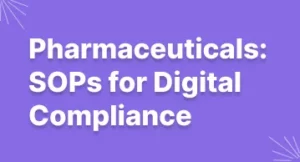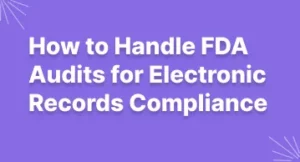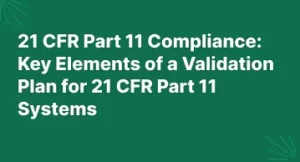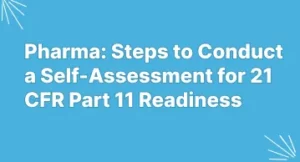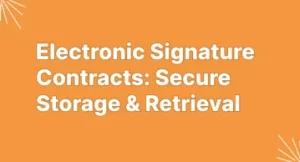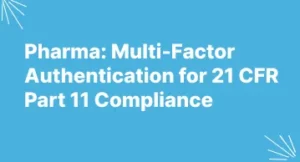Vendor KYC Verification: Safeguarding Retail & FMCG Excellence
Introduction
In the ever-evolving landscape of retail and Fast-Moving Consumer Goods (FMCG), the efficient procurement and distribution of products are critical for success. To ensure seamless operations and mitigate risks, Vendor Know Your Customer (KYC) verification has emerged as an indispensable process. This blog explores what vendor KYC verification entails, its significance in the retail and FMCG sectors, the associated benefits and challenges, and effective strategies to overcome these challenges.
What is Vendor KYC Verification?
Vendor KYC verification is a comprehensive process through which businesses in the retail and FMCG sectors verify the identity, legitimacy, and financial stability of their suppliers and distributors. It involves the collection and verification of essential documents and information to assess the suitability and reliability of vendors. This process ensures that businesses engage with trustworthy and compliant partners, reducing the potential for fraud, financial losses, and reputational damage.
Why is Vendor KYC Verification Important in Retail and FMCG?
- Risk Mitigation: Retail and FMCG businesses are susceptible to various risks, including financial fraud, supply chain disruptions, and regulatory violations. Vendor KYC verification acts as a preventive measure by identifying and mitigating potential risks associated with unreliable vendors.
- Regulatory Compliance: Stringent regulations govern the retail and FMCG sectors, especially concerning product quality, safety, and consumer protection. By conducting thorough KYC checks on vendors, businesses can demonstrate compliance with these regulations, avoiding legal consequences and fines.
- Reputation Management: A retail or FMCG company’s reputation is its most valuable asset. Partnering with vendors who engage in unethical practices or are involved in illegal activities can tarnish a company’s image. Vendor KYC verification helps maintain a clean and trustworthy supply chain, enhancing brand reputation.
- Cost Reduction: By ensuring that vendors are financially stable and adhere to business ethics, businesses can reduce the likelihood of costly disruptions in the supply chain. This leads to cost savings and improved overall efficiency.
Benefits of Vendor KYC Verification
- Enhanced Security: Mitigates the risk of fraud and financial losses by ensuring that vendors are legitimate and trustworthy.
- Regulatory Compliance: Helps businesses adhere to industry-specific regulations, avoiding legal complications.
- Improved Reputation: Maintains a positive brand image by associating with ethical and reliable vendors.
- Supply Chain Resilience: Ensures a reliable and resilient supply chain, reducing the impact of disruptions.
- Cost Savings: Prevents financial losses due to unreliable vendors and reduces the need for extensive due diligence.
Challenges of Vendor KYC Verification
- Data Collection: Gathering accurate and up-to-date vendor information can be time-consuming and challenging, especially for businesses with a large vendor base.
- Document Verification: Verifying the authenticity of documents provided by vendors can be complex, as forgeries and inaccuracies may be difficult to detect.
- Compliance Complexity: Staying compliant with evolving regulations and ensuring that vendor KYC processes align with legal requirements can be a significant challenge.
- Resource Allocation: Deploying the necessary resources, including technology and personnel, to conduct thorough KYC checks can be costly.
- Vendor Cooperation: Some vendors may resist or delay the KYC verification process, creating bottlenecks in onboarding and procurement.
KYC Requirements for Customer Onboarding
- Identity Verification: Businesses must verify the customer’s identity using government-issued documents like passports, driver’s licenses, or national IDs.
- Address Verification: Confirming the customer’s residential address is essential, usually by requesting utility bills or other official documents.
- Risk Assessment: Determine the customer’s risk profile based on factors such as their business type, location, and transaction history.
- Ongoing Monitoring: Continuously monitor customer transactions for any suspicious activity or changes in risk.
- Record Keeping: Maintain records of KYC documentation and customer information for regulatory audits.
How to Overcome the Challenges of Vendor KYC Verification
- Streamlined Data Collection: Invest in digital tools and platforms that allow vendors to submit required information electronically, simplifying the data collection process.
- Advanced Verification Technology: Employ advanced document verification and fraud detection technology to ensure the authenticity of submitted documents.
- Regulatory Compliance Software: Utilize compliance software that automatically updates KYC processes in line with changing regulations, reducing compliance complexity.
- Resource Optimization: Evaluate the optimal allocation of resources for KYC verification, considering factors such as vendor risk profiles and transaction volumes.
- Vendor Engagement: Educate vendors about the importance of KYC verification and its benefits, fostering cooperation and timely submission of required documents.
Different Types of Vendor KYC Verification
Vendor KYC verification can be tailored to meet specific business needs. There are several types of KYC verification, each offering varying levels of scrutiny:
- Basic KYC Verification: This involves the collection and verification of essential vendor information, such as identity, contact details, and business registration documents. It serves as a foundational level of verification.
- Enhanced KYC Verification: Enhanced KYC goes a step further by conducting more in-depth background checks, assessing vendor financial stability, and scrutinizing ownership structures.
- Video KYC Verification: Video KYC adds an extra layer of security by requiring vendors to participate in a video call during the verification process. This ensures that the person providing information matches the documents submitted.
KYC Verification Process for Vendors in Retail and FMCG
A robust vendor KYC verification process typically comprises the following steps:
Step 1:Collect Vendor Information
- Gather basic information from vendors, including names, addresses, contact details, and business registration documents.
Step 2:Verify Vendor Identity
- Verify the identity of the vendor by cross-referencing provided documents with government-issued IDs or passports.
Step 3:Verify Vendor Address
- Confirm the vendor’s physical address through utility bills or official documents.
Step 4:Verify Vendor Financial Status
- Assess the vendor’s financial stability by reviewing bank statements, credit reports, and financial statements.
Step 5:Verify Vendor Business Registration
- Validate the legitimacy of the vendor’s business by examining registration documents, licenses, and permits.
Step 6:Conduct Background Checks
- Perform comprehensive background checks to identify any adverse information, legal issues, or connections to unethical practices.
Best Practices for Vendor KYC Verification
- Use a KYC Verification Solution that is Compliant: Ensure that your KYC verification solution adheres to all applicable laws and regulations, including data privacy and anti-money laundering (AML) requirements.
- Implement a Robust KYC Verification Process: Develop a well-defined and documented KYC process that includes clear guidelines, roles and responsibilities, and escalation procedures for non-compliance.
- Conduct Regular KYC Reviews: Regularly update and review vendor KYC information to account for changes in vendor status, ownership, or regulatory requirements.
- Educate Your Vendors: Provide clear information to vendors about the KYC verification process, its purpose, and the benefits of compliance to encourage their cooperation.
Vendor KYC verification is crucial for safeguarding excellence in the retail and FMCG sectors. However, it’s also essential to address identity theft and fraud in the online world. To gain insights into preventing identity theft through online video KYC practices, delve into our blog on ‘Securing Your Identity: Preventing Identity Theft in Online Video KYC’. This blog will provide you with valuable insights into security measures in the digital age.
Conclusion
In the dynamic world of retail and FMCG, vendor KYC verification is an indispensable tool for ensuring the security, compliance, and efficiency of procurement and distribution processes. By mitigating risks, maintaining regulatory compliance, and upholding brand reputation, businesses in these sectors can thrive in a competitive marketplace.
As the business landscape continues to evolve, vendor KYC verification will remain a critical aspect of risk management and supply chain resilience. Embracing advanced technology, regulatory compliance, and effective vendor engagement will enable businesses to navigate the challenges and harness the benefits of robust KYC verification processes.
In this context, MSB Docs’ eKYC solution for Vendor KYC Verification offers a cutting-edge approach to streamline and enhance the vendor verification process. By leveraging digital tools and compliance expertise, businesses can stay ahead in an ever-changing environment, safeguard their interests, and build lasting partnerships with trustworthy vendors.
Explored Vendor KYC Verification for safeguarding retail and FMCG excellence? Ready to strengthen your vendor relationships and compliance? Take the next step with MSB Docs. Request a demo or book your free trial today.
FAQs
1. What documents are typically required for Vendor KYC Verification?
For Vendor KYC Verification, you would typically need documents such as government-issued IDs, utility bills for address verification, bank statements, and business registration documents. These vary depending on the level of verification required.
2. Are there any penalties for non-compliance with vendor KYC regulations?
Non-compliance with vendor KYC regulations can result in significant penalties, including fines and legal consequences. It’s crucial to ensure your business remains compliant to avoid such repercussions.
3. How often should I conduct KYC reviews for my vendors?
Regular KYC reviews are essential to keep vendor information up-to-date. The frequency of reviews can vary based on risk profiles, but it’s advisable to conduct them at least annually, if not more frequently for high-risk vendors.
4. Can digital solutions simplify the vendor KYC verification process?
Yes, digital solutions can significantly simplify the vendor KYC verification process. They streamline data collection, enable real-time verification, and often come with built-in compliance features, making the process more efficient and accurate.
5. How can I encourage vendor cooperation in the KYC verification process?
Educating vendors about the importance of KYC verification and its benefits is key to fostering cooperation. You can also offer user-friendly, digital tools to make the submission of required documents and information easier for them.
